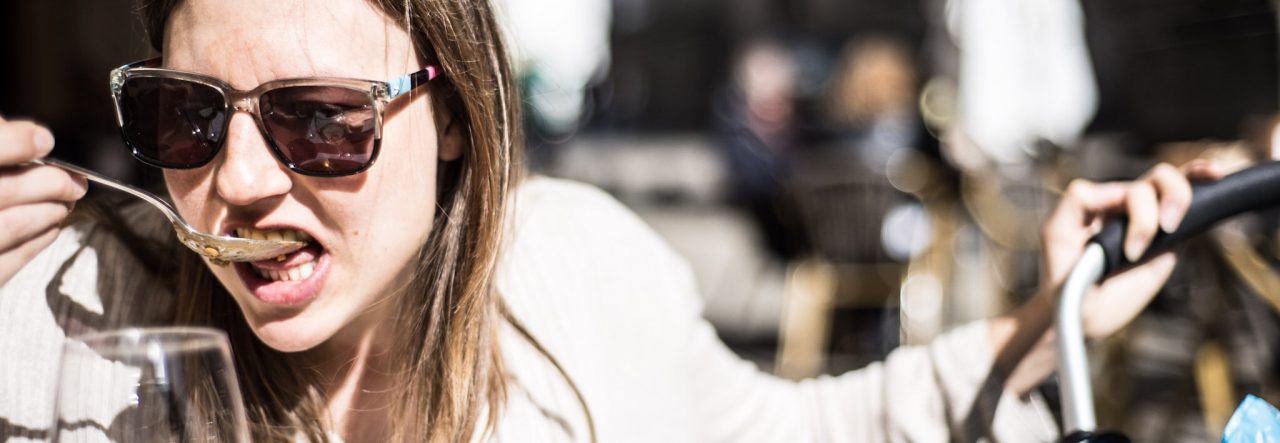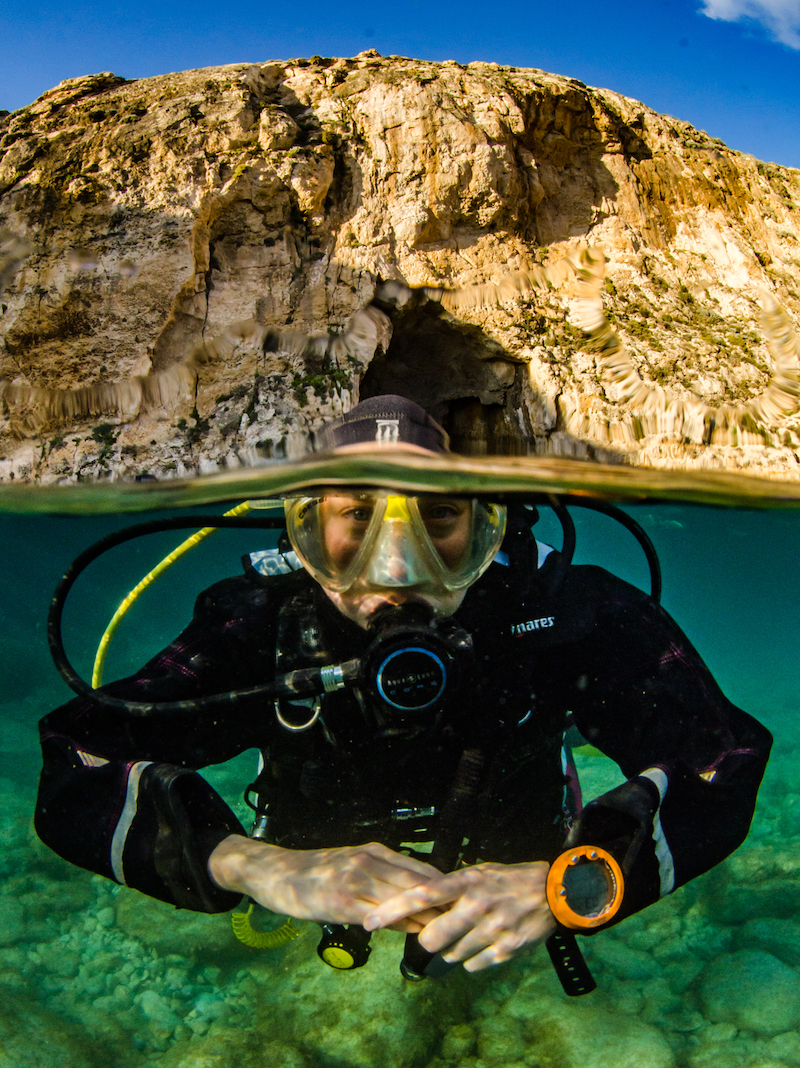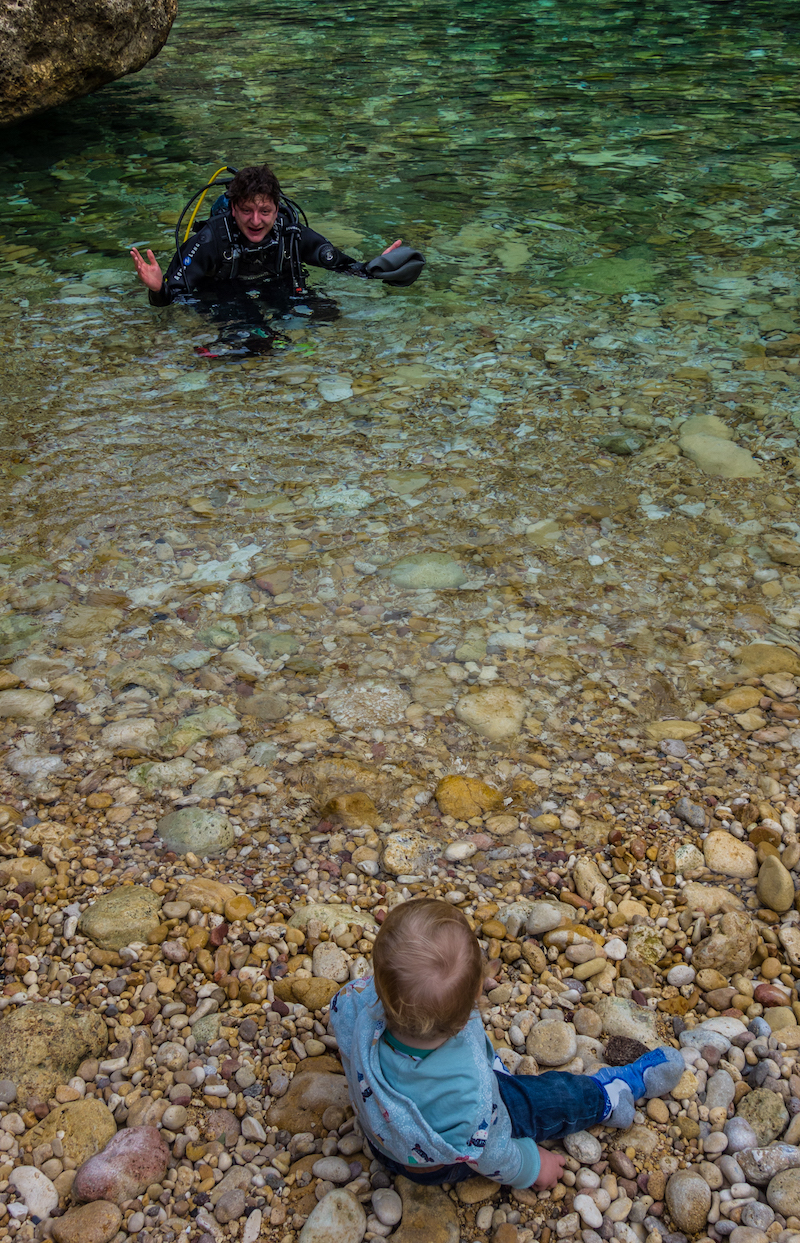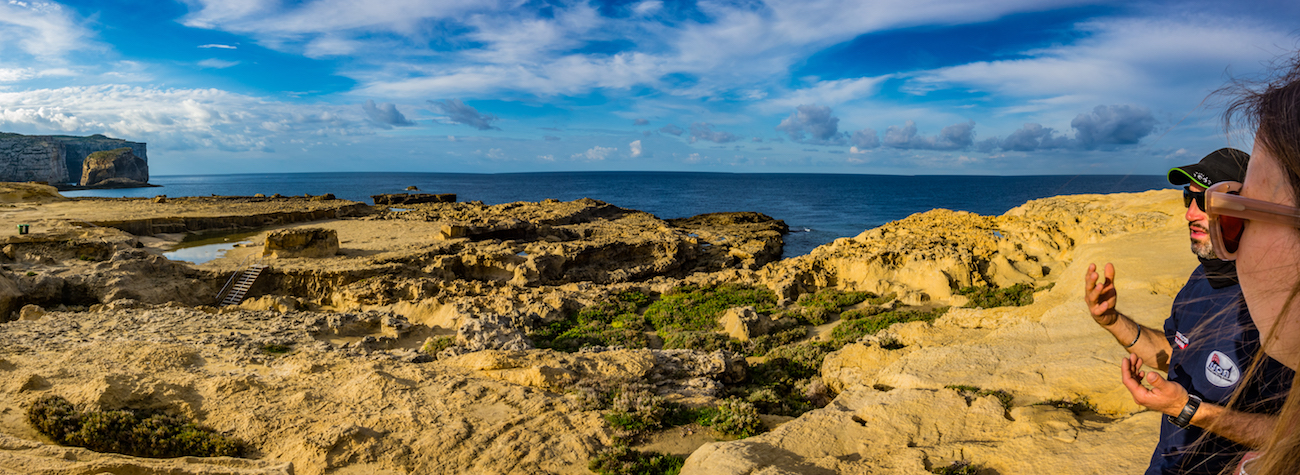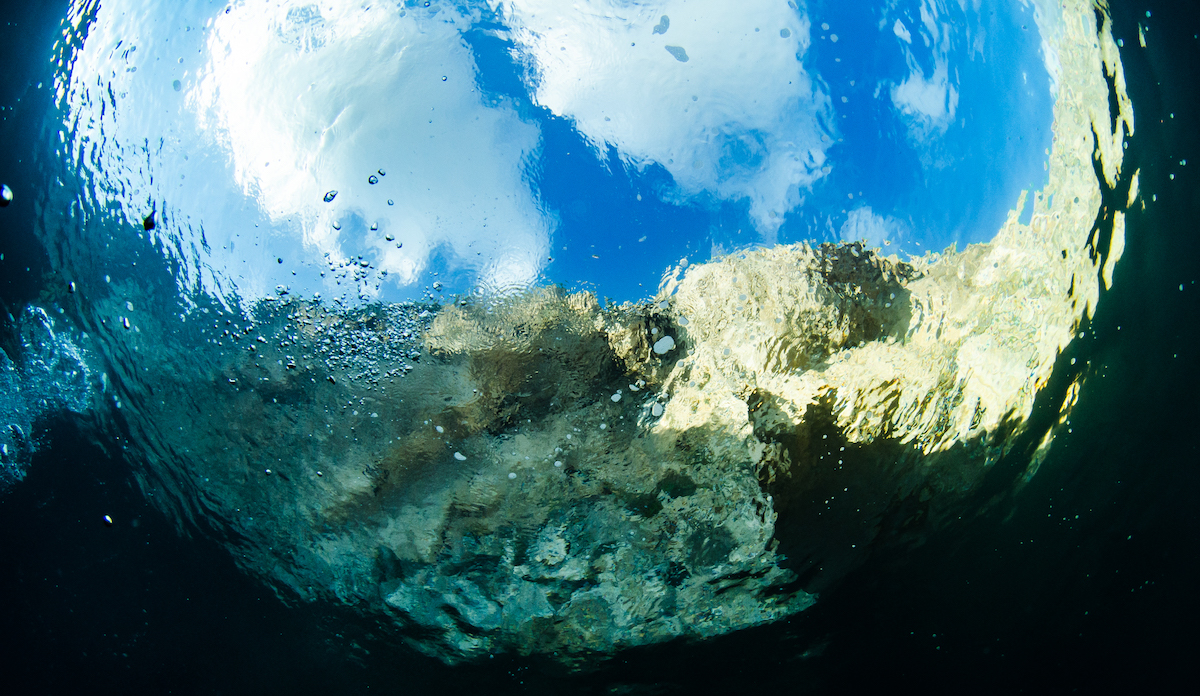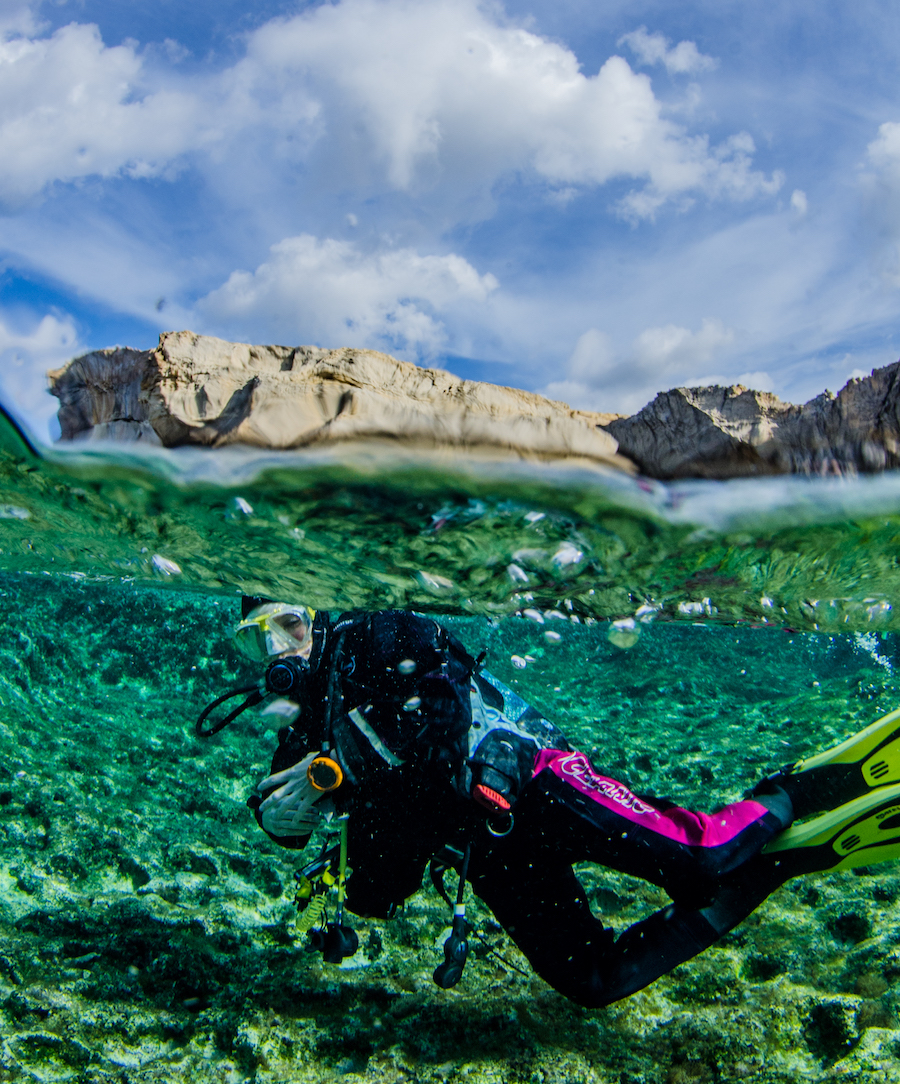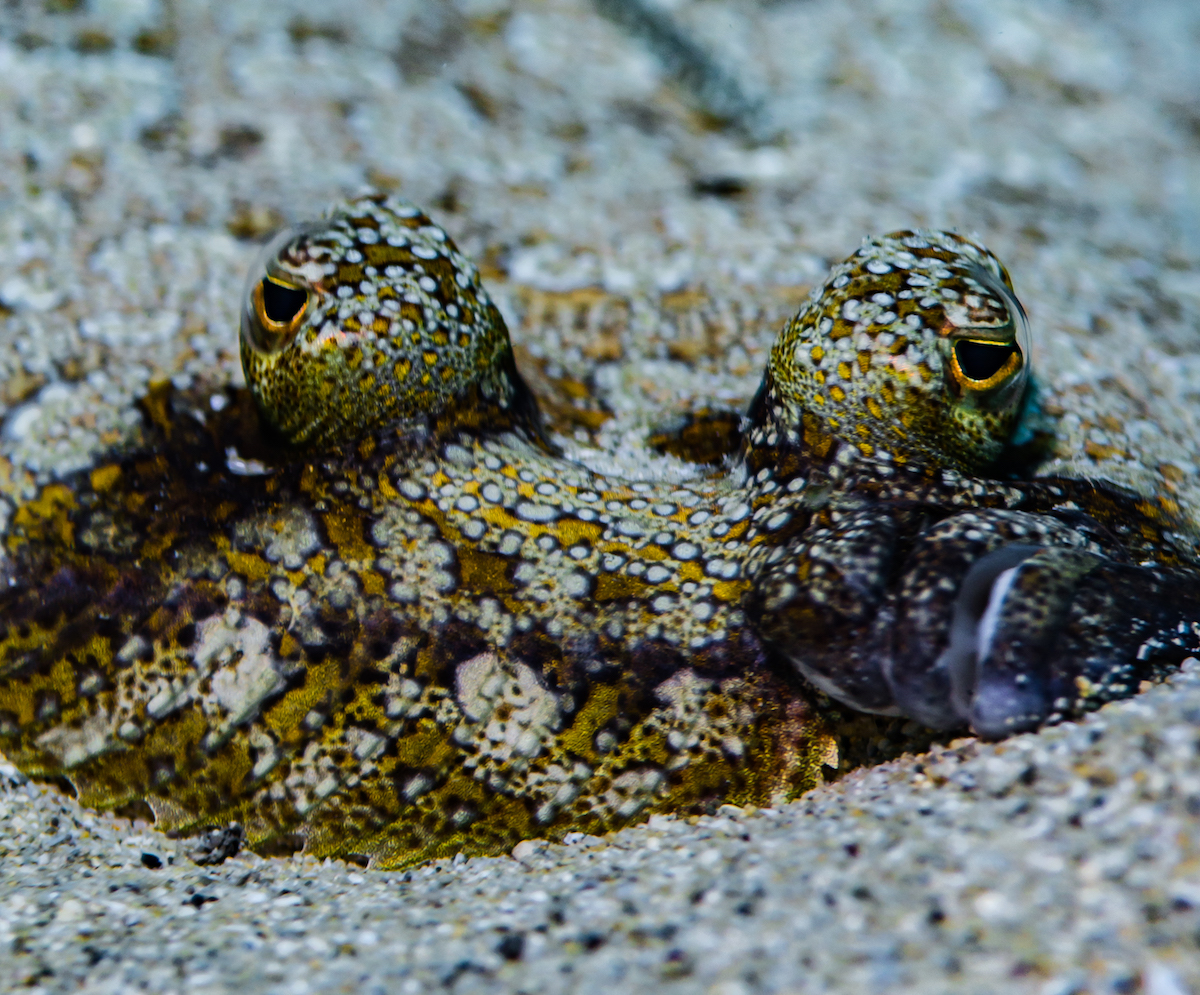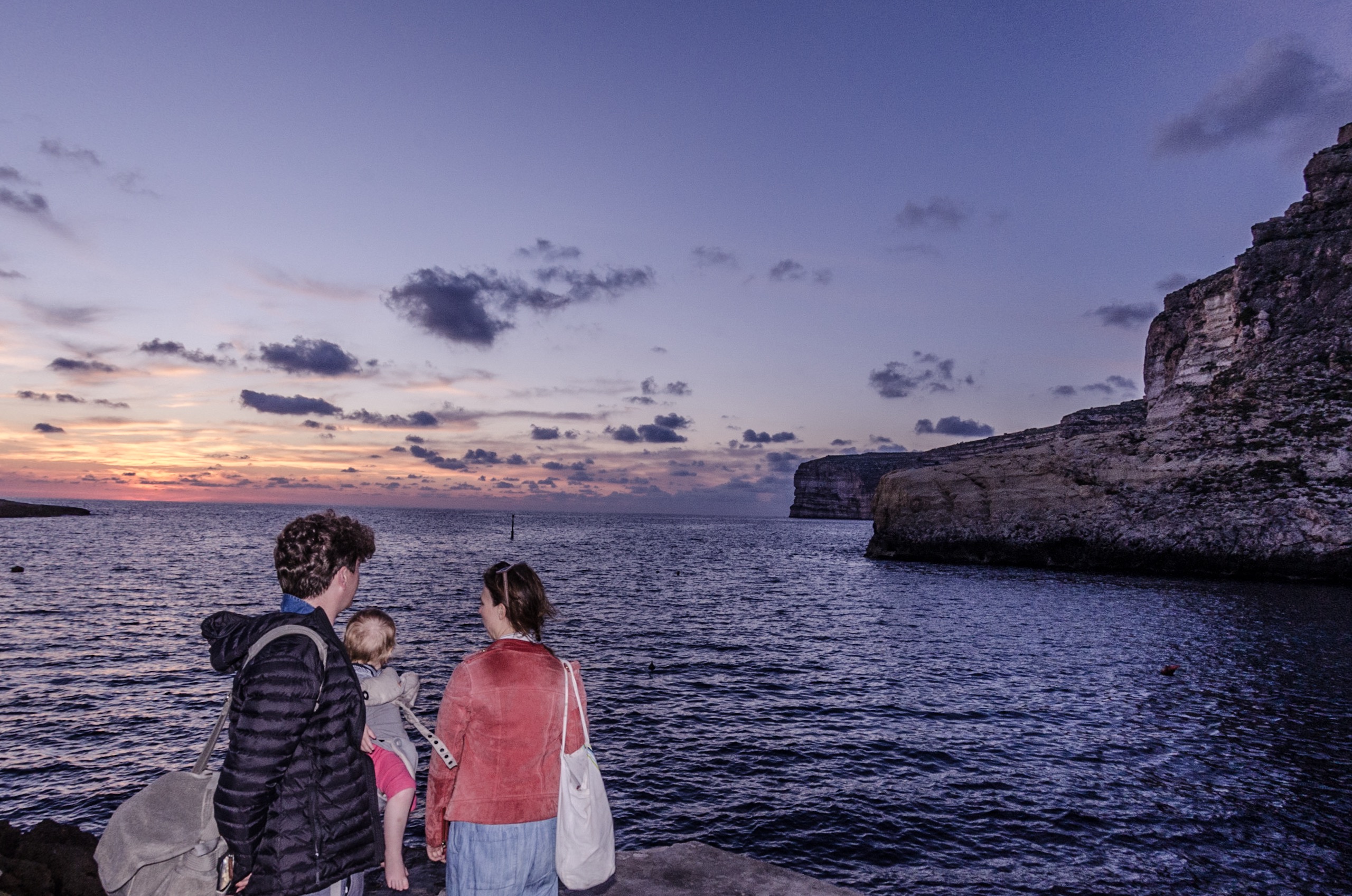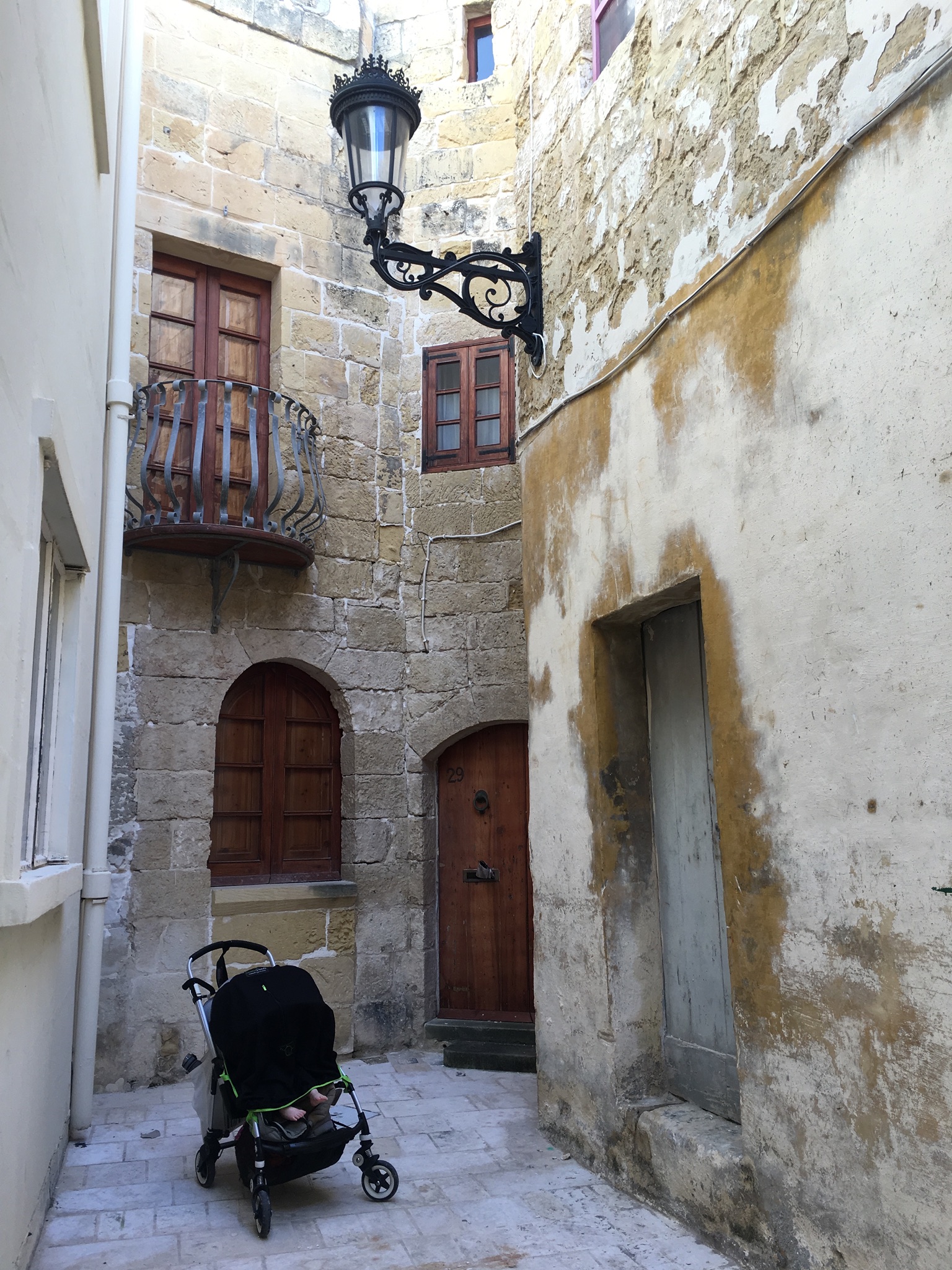Published by Diver, May 2018, with the headline “Baby diver”.
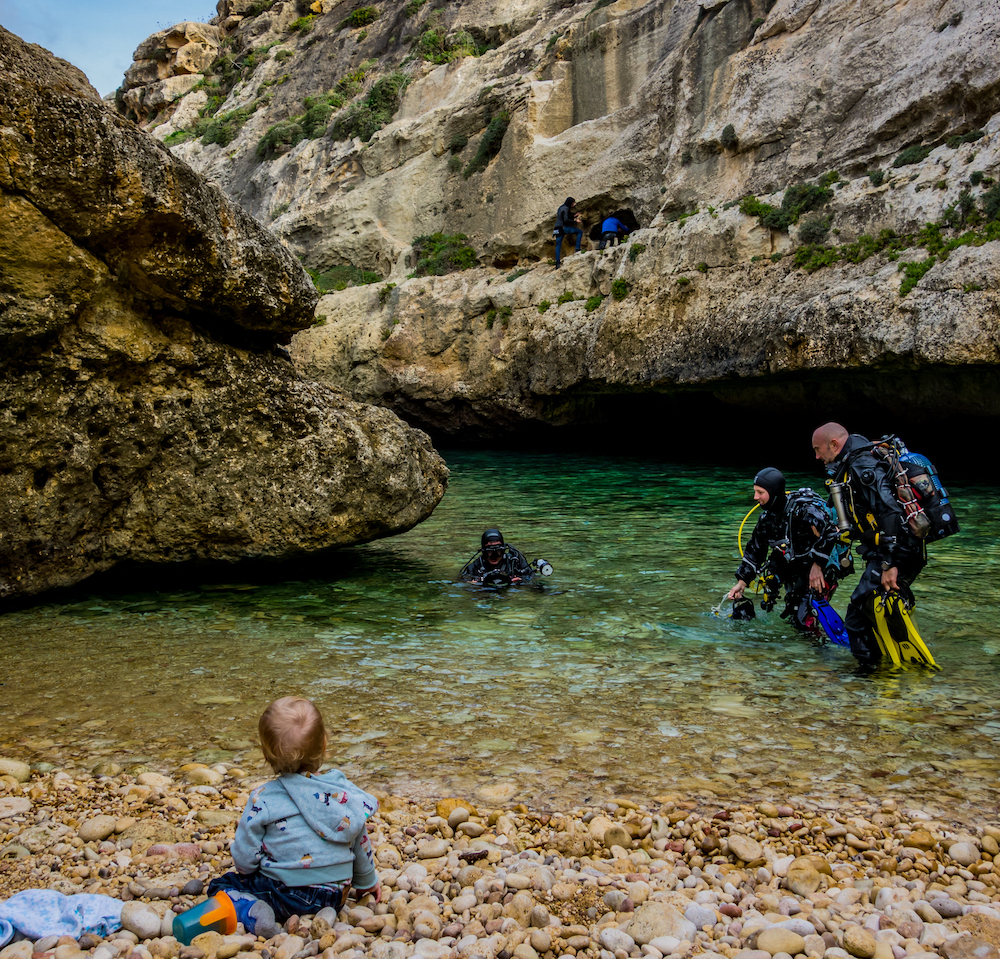
Almost the moment my partner and I found out that I was pregnant, we started talking about the first dive trip we’d take with the baby. We had lost count of the number of times that people, on finding out that we were divers, told us wistfully how much they used to love diving too…before their kids were born and that phase of their life came to an end. We really didn’t want that to happen to us, but we knew that we would need to be proactive if we were going to continue diving as new parents.
When our daughter was three-months-old we booked a week’s diving at a Red Sea resort with some friends who have a baby around the same age. That trip, which took place when she was seven-months-old, was exhausting, but it was also an unqualified success and got us talking about where we could take her next. Two dive trips later – first to the Maltese island of Gozo, then to El Hierro, the most remote of the Canary Islands – this is what we’ve learned.
Choose your destination wisely
While in the past our choice of dive destination was informed mainly by what we could afford and whether we had the time to do it justice, these days there are more factors to consider. Babies and jet lag are a bad combination, so we try to avoid time differences greater than four hours unless we’re going away for at least 10 days. Flight time and transfers come into play too – long-haul flights are doable with a baby or toddler, but short-haul is certainly easier, and the smoother the transition from airport to accommodation the better. If you’re itching to visit a particular long-haul destination, however, there is definitely an argument for doing it sooner rather than later – most airlines charge a small fee for travelling with a baby, while toddlers two and up pay full fare.
All those considerations might seem limiting, but that’s not necessarily a bad thing: there’s a lot of world out there to dive and it can be helpful to have your options narrowed a bit. Being forced to shift the focus onto some of the excellent, but less glamorous, diving available closer to home can be positive too. We are UK-based, but had never thought to go the Canaries before, for example, because far flung spots like Sipadan and the Great Barrier Reef just seemed like more tempting options. But on our recent trip there, we dived on an underwater volcano, spotted bull rays for the first time and explored some of the prettiest shallow caves we had ever seen.
Family-friendly dive centres
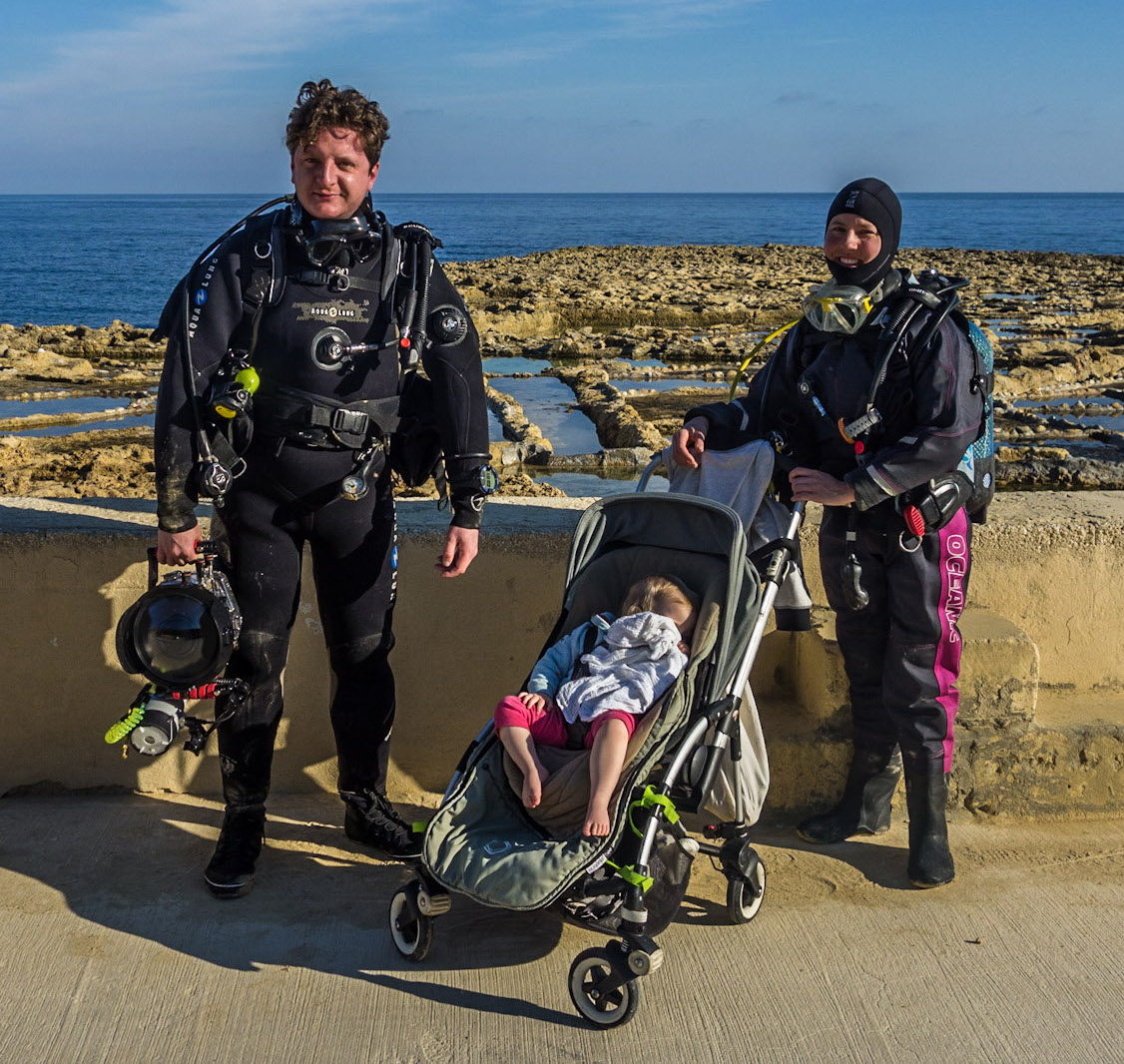
Dealing with staff who are willing to be a bit flexible about how they do things (within the bounds of safety and not negatively impacting other divers, of course) makes all the difference when it comes to diving with a baby in tow. We really fell on our feet with the staff at the dive centres we’ve visited since travelling with our daughter. The dive guides and RIB driver at Orca Dive Club Soma Bay in Egypt were extremely patient when we arrived a few minutes’ late for the scheduled departure time for almost every dive, for example, while those at Atlantis Dive Centre in Gozo let our daughter and my babysitting brother (see below for more on childcare on dive trips) come with us in the dive truck so they weren’t stuck in the apartment.
Let the dive centre know that you’ll be travelling with a baby when you first enquire about a trip. Or if you’re booking through an agent, ask them to sound out the dive centre on your behalf. If they appear uptight at this stage, look for an alternative – travelling with a little one is unpredictable enough with having to worry about dive centre staff throwing a hissy fit if you have to opt out of a dive at the last minute.
In addition to making the diving itself more relaxing, and therefore more enjoyable, a family-friendly dive centre can also be helpful when it comes to recommending baby-friendly restaurants or activities, and some will even arrange babysitting. At Atlantis our little one was delighted to find a huge pile of toys belonging to the daughter of the couple who own it; and we were delighted to be able to sort out our gear in peace after each dive.
Get informed about your accommodation
If having the dive centre close by was important before, it’s even more so now – babies take up a lot of time and you don’t want to spend any more of it in transit than strictly necessary.
Other factors to consider when you’re choosing accommodation are proximity to shops, bars and restaurants, availability of healthcare (more of an issue at remote destinations in the developing world than elsewhere) and the presence of a pool (ideally heated) or baby-friendly beach.
The biggest accommodation decision you need to make is between resort and self-catering. The latter is certainly easier as far as flexibility around meals and snacks for your little one, but grocery shopping, cooking and cleaning take up valuable time that you might otherwise be able to spend diving. Hotel buffets are also excellent if your little one is hard work at mealtimes, allowing you to tag team eating and childcare while not letting your dinner get cold.
Make the most of childcare
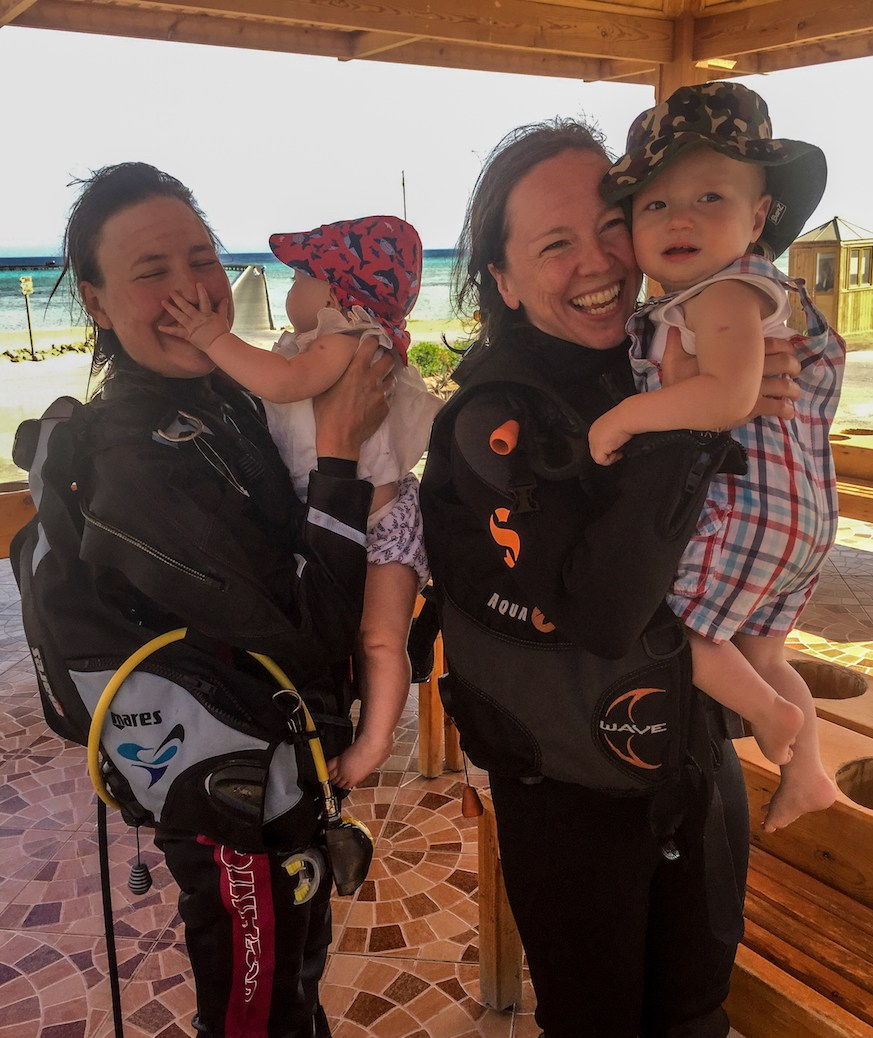
Couples where only one partner dives have it easier when it comes to travelling with a baby – just make sure the non-diving partner gets some relaxation time doing what they like, too.
If both dive, the simplest option is to tag team diving and childcare, but that can feel like a somewhat sad way to spend a vacation if part of what you love about scuba is sharing it with your other half.
Many resorts have a free or inexpensive kids’ club, some of which are open to children from the age of two. This can be an excellent – and fun – solution to your childcare problem, but won’t be right for all children. You need to be prepared for your child to take a while to settle in or refuse to go altogether.
Taking a non-diving friend or relative along to babysit is a good alternative; and offering to cover some of the costs might entice more candidates for the role, if your budget stretches that far. Or go with another pair of diving parents who will be happy to look after your little one while you dive and vice versa.
Be organized
Vacations are supposed to be about kicking back and going with the flow, right? Sadly not, if you’re talking about taking your baby away with you diving. Gone are the days when you can just roll up at the dive centre, do a day of diving and head straight to the bar afterwards. That doesn’t mean you won’t have a brilliant trip, it just means you need to do a bit more day-to-day planning than you used to.
On our trip to Egypt, my partner and I and the other couple all each squeezed in two dives a day every day by doing very efficient changeovers. After each dive the babysitting pair would be waiting at the dive centre with the babies, ready to hand them over the moment the diving pair were out of their wetsuits. As the new diving pair prepared for their dive, one of the new babysitters would take charge of the babies, while the other rinsed and hung up both sets of gear. We would also discuss at dinner each night who was diving and when on the following day, making use of both early morning and sunset dive options so we could pack in as much time underwater as possible.
For self-catering trips, meal planning will allow you to have as chilled out a surface interval as possible, especially if your accommodation is close to the dive centre. It’s not always easy pinning down exactly how long you’ll be out on a dive, so having something easy like sandwiches or leftovers that be quickly thrown together or heated up is a good route to go down.
Be prepared for a slower pace

Unless you’re taking a babysitter along who’s happy to look after your little one all day every day, it’s unlikely that you will be able to do as much diving as you did on trips pre-parenthood. Chat with your partner (and whoever is helping with childcare, if applicable) before the trip about your expectations – all things considered, how many dives will you each be able to do per day? Getting into the right frame of mind – that you’re there not just for diving but also to spend some time together as a family – will ensure you have a more enjoyable experience.
With that in mind, it’s probably best to hold off on those bucket list dive destinations until your child is old enough to be left at home with a relative while you travel – or of an age to dive with you! You don’t want to fly half way round the world just to spend your trip seething with jealousy when you find out that you missed out on seeing the sardine run/marine iguanas/a shoal of manta rays because it was your turn looking after the baby.
Destinations that require long boat trips to reach the dive sites are best saved for another time too. Opt instead for a resort with an excellent house reef, or plenty of local dive sites, so you can dive a couple of times a day with a minimum of fuss. You may not see anything really earth shattering on this type of trip, but sometimes a slower pace can give new passions room to breathe, whether that’s observing fish behaviour, spotting rare nudibranchs or getting handy with a GoPro.
Remember that increased time topside is also an opportunity to immerse yourself in the cultural side of a destination, get to know a new cuisine or explore the great outdoors, all elements that might have played second fiddle to the diving before your little one came along.
Don’t be intimidated
If all this sounds like hard work, don’t worry…I promise that it will be worth it. A dive vacation with your baby in tow is a very different beast to the dive vacations you took before you became parents but different doesn’t mean inferior – go into the experience with your eyes open and you never know what adventures you might be letting yourself in for.
